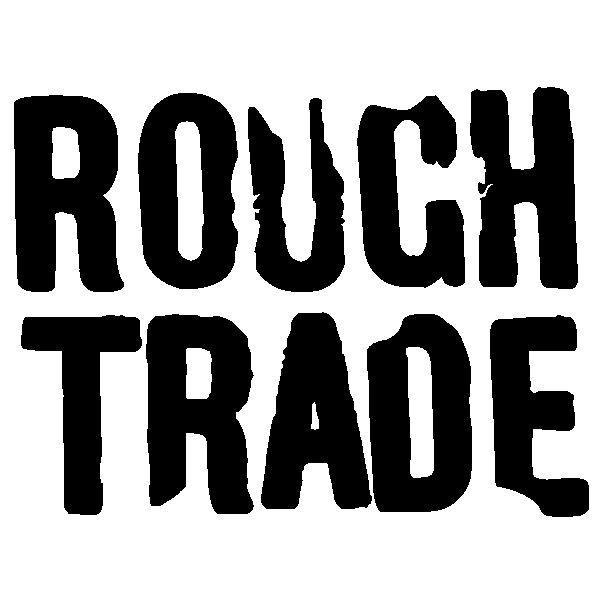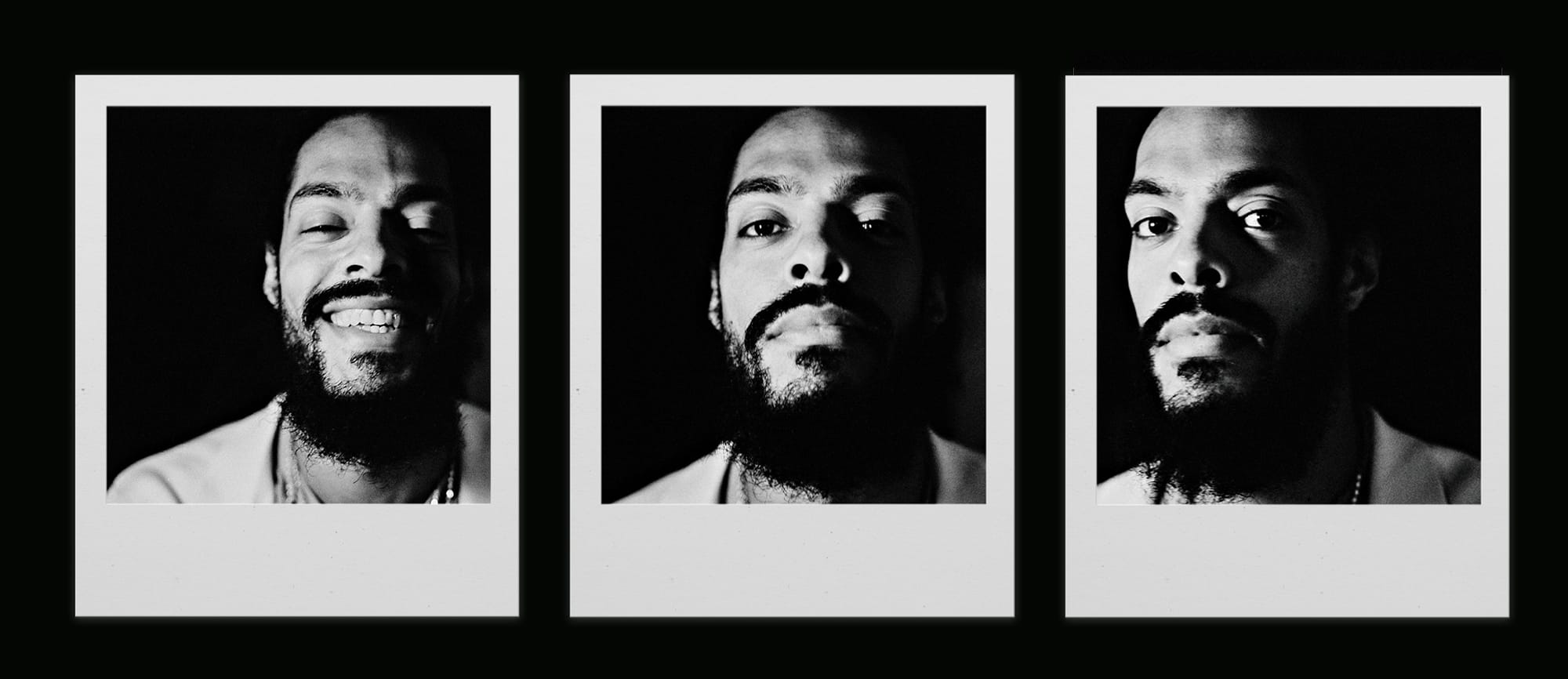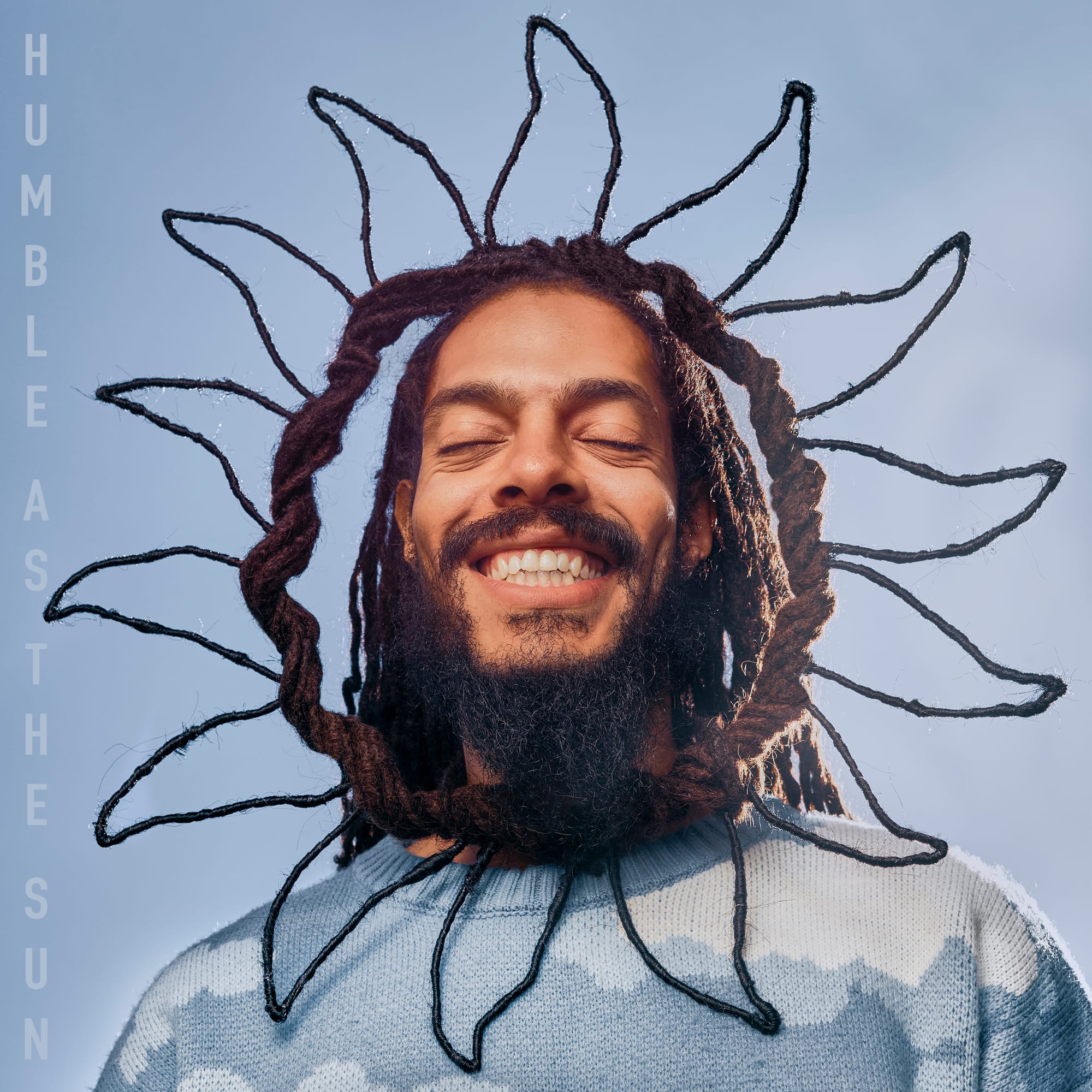"The sun is a thing that never dims its light for anybody. I don't want to dim my light for anybody. Even when the clouds are in front of me and it feels like a grey day, I still want to feel present and bright, and powerful."
Interview by Georgia Mulraine
Photos by James Potter
It's a quiet mid-March Monday morning at Rough Trade East, a handful of shoppers shuffle the freshly reset racks as Bobby Vylan, the charismatic frontman of London punk/alt-rap duo Bob Vylan wanders in, bringing with him his own sunshine and warmth on an otherwise very grey day. No stranger to Rough Trade shops, Bobby moves from greeting a friend on the shop floor to settling down on our green room sofa, clocking the voice of Rough Trade's own Sean Forbes rising from under the stairs in the stock room below.
"Is that Sean Forbes? He's the guy who helped us get into the shop (Rough Trade) for the first time" says Bobby. "When we released the first album, we didn't have a distributor or anything. He just emailed us. I think the album had been out and he just found it somewhere and was like: Yeah, I want to try that."
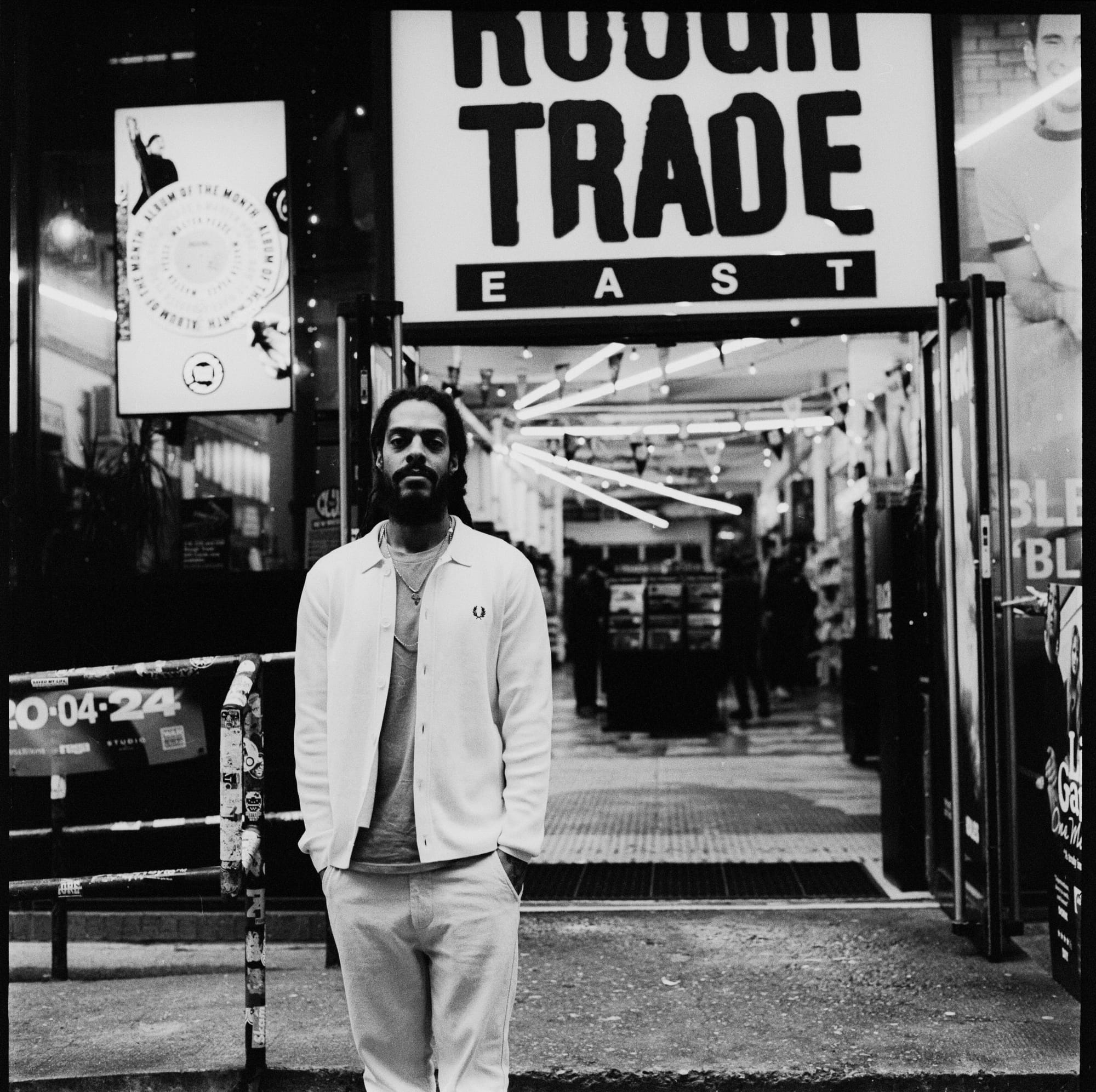
This personal connection with Rough Trade has very much aligned with Bob Vylan's DIY ethos over the years, as Bobby explains how the band have always operated with Rough Trade stores when it comes to distributing their records:
"Sean took an exclusive variant on the vinyl and then from there, the relationship just built and built and built. It's nice, because I've always had this kind of direct relationship with Rough Trade, you know what I mean? Where most artists, I suppose, their distributor or their manager, their label or whatever, that's the people that you go to. But even for this new album, I was able to reach out to Sean and be like, 'Yo!' And then I was able to put him in touch with our distributor."
As the release of their third album, Humble As The Sun is on the horizon, Bob Vylan's straight-up, no-nonsense DIY attitude has been unfaltering, the biting lyricism they have come to be known for seems as potent as ever. For instance on new album track GYAG (Get Yourself A Gun): "Landlord just raised your rent / better get yourself a gun", the message feels clear, a similar rage against the injustices of the same capitalist society they so strongly condemned on their second album: Bob Vylan Presents: The Price of Life. Anger is still justifiably present, but does it characterise the whole album? The cover immediately suggests not - a photo of a happy Bobby with his dreads styled to be like the sun. Streaks of positivity can be found elsewhere in the album's more poetic moments, and as Bobby explains to us, a sense of optimism: "we can try and make the decision to empower ourselves and not suffer through these things". A reminder to always know your own worth amongst negativity.
Digging into the duo's thematic direction, staying DIY and the power of the sun, we discuss Bob Vylan's third album and what the future holds on their mission of empowerment.
Your new album Humble As The Sun arrives this April, your third album as Bob Vylan, following a chart debut with Bob Vylan: Presents The Price of Life. It’s been an impressive journey so far, one we’ve really enjoyed witnessing, in particular at a memorable set of Rough Trade in-stores with you guys last year. At the Rough Trade East show you brought a large number of the fans on stage, and addressed the crowd about being independent: ‘No manager, no record label, just me and Bob and hard fucking graft’. These words really stuck with us, a testament to the power of DIY music, which you should be rightly proud of.
The DIY ethic feels prominent again in this album, referenced lyrically but also with it being another release on your own label Ghost Theatre. In what ways does being DIY continue to influence or define your work? Did you expect to be doing things this way by album three?
I think it influences the business side of things more than any of the creative side. I think the creative side, I don't know if you could call it influence, but the DIY aspect of it comes into play in the fact that we can create whatever we want. And so there isn't anybody or any label or anything saying, maybe you should do this, or maybe you should do that, or whatever. And I think that's how it comes into play creatively. But business-wise, the DIY aspect of it is more prominent. I suppose just because we conduct our business in a way that we see fair, do you know what I mean? And fair for all parties involved. So, you know, for us this is not just some get-rich-quick scheme or something. It's something where we just want to be fairly compensated for the work that we do and the time that we spend creating the music, but also want the people that we're working with to be fairly compensated as well.
"If that's like an additional producer, or even if it's like a place like Rough Trade, where we have a direct relationship and there's a: "Oh, we want to take X amount of vinyl" and then I say, "This is how much I need, is that a fair enough price for you?" We can work that together so that it's good business around the whole thing."
It's something that puts me off working with certain other bands. I've had it before where I've done collaborations or whatever with other bands, and as a band, they might be quite nice people and stuff, but the business around them is bad. It can leave a kind of sour taste in your mouth, if you feel like you give time and energy to somebody else's project but like you're not fairly compensated. Or there's like kind of like sneaky stuff happening in the background. I think the music industry has enough of that. We don't need to contribute to it you know.
Did we think we would be doing this by album three? Once it happened on album one and it worked, then yeah, absolutely.
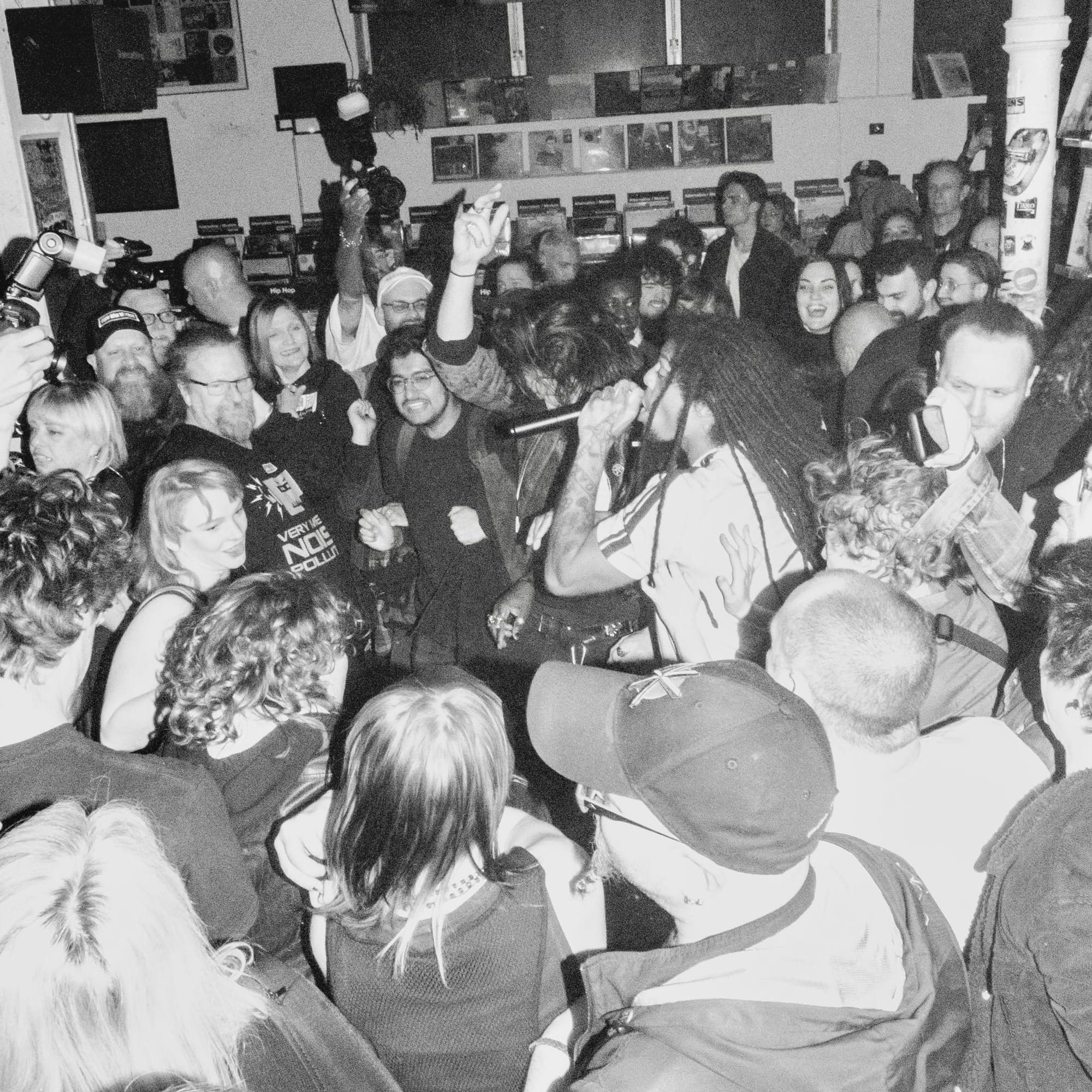
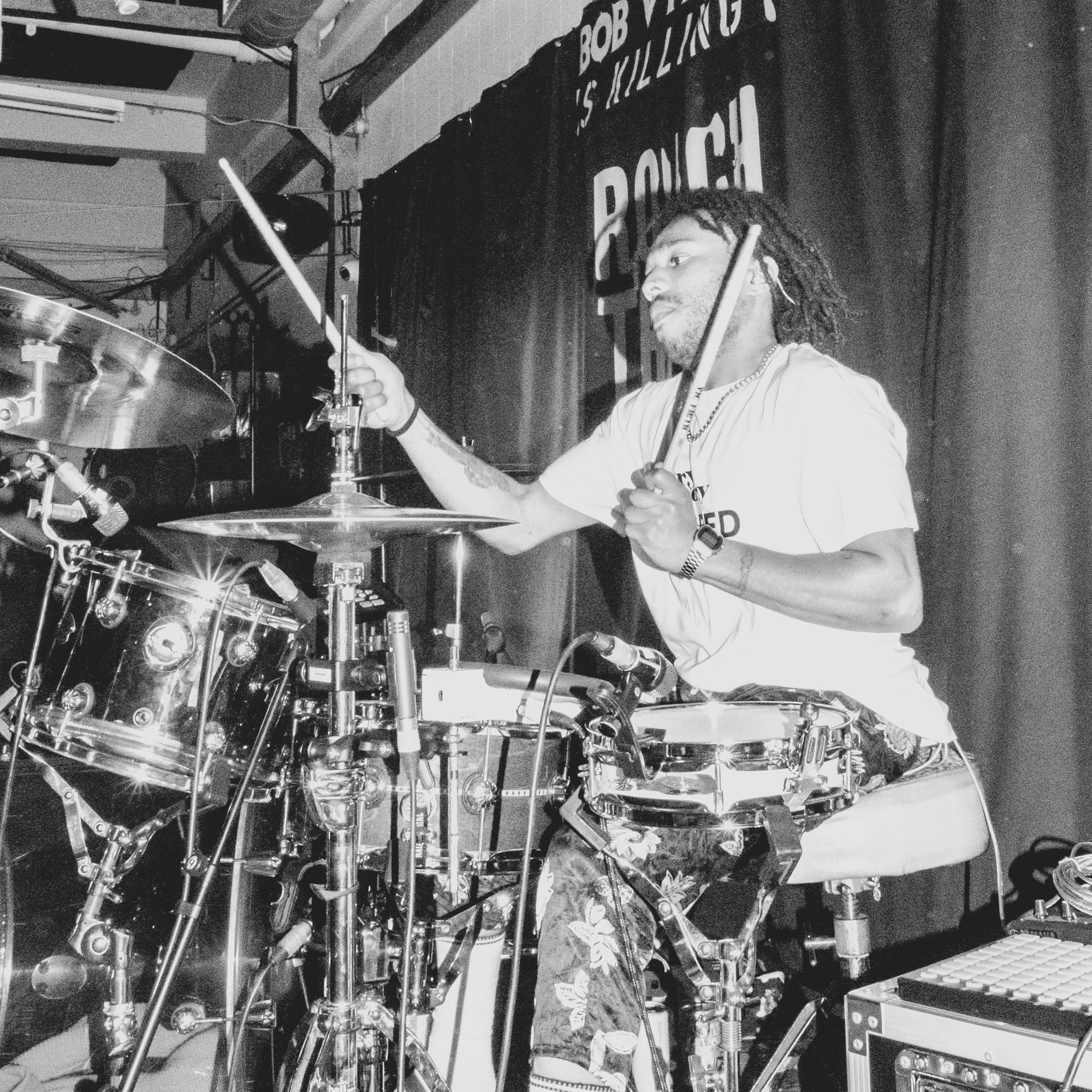
Could Ghost Theatre look to work on other projects outside of Bob Vylan?
Yeah, for sure. Each album that we release on Ghost Theatre is a stepping stone towards that. So, you know, with The Price of Life, for example, we had to get that chart registered, because We Live Here wasn't chart registered. I didn't know how to do that at the time. Come Bob Vylan presents The Price of Life, I was on the phone to absolutely everybody I knew that might know how to do such a thing, to try and figure it out. I managed to figure it out and we chart registered it and, you know, it did what it did in the charts and it was fantastic. But that's something that I had to learn. There are things that I'm learning on this campaign, on the business side of things, that I will take with me, maybe into album four. But all of these things we'll take with us when Ghost Theatre starts to release other people's music. I wanted us to be the guinea pigs. Because, you know, I'm an artist as well, so I know that the art I create is important to me. I know that the art other artists create is important to them, and how that art is then delivered and how it reaches the people. If people feel as though something hasn't been done to push the music out as wide as possible or whatever, again, there's room for bad blood to start being created. And so for me, I just want to make sure that if I'm failing at something, I'm failing on myself, so that I'm not ruining anybody else's opportunities or their dreams or their empowerment. But releasing other people's projects is definitely something I'm working towards.
Humble As The Sun ventures into a few different genre territories with the opening track showcasing a more soulful side and other songs containing more distinct elements of punk, electronic and reggae. Are there any stand-out or new influences which you are aiming for people to pick up on - musically or thematically?
Well, thematically, I think it's definitely a more hopeful and inspiring album than the previous album. I think there is a thread throughout the album of self-empowerment, self-belief, having self-worth, even in the face of everything that we are going through as people and in this current economic and political climate. That's not necessarily new because I hear it in some of the older stuff that we've done, but I think it's a bit more at the forefront and a little more prominent than in our previous releases. Musically? I suppose, yeah. We've never had an organ on any of the previous albums, or a piano, for that. The band has grown and it has allowed me to be in spaces where there was access to an organ, and access to a piano, and so that has grown quite naturally.
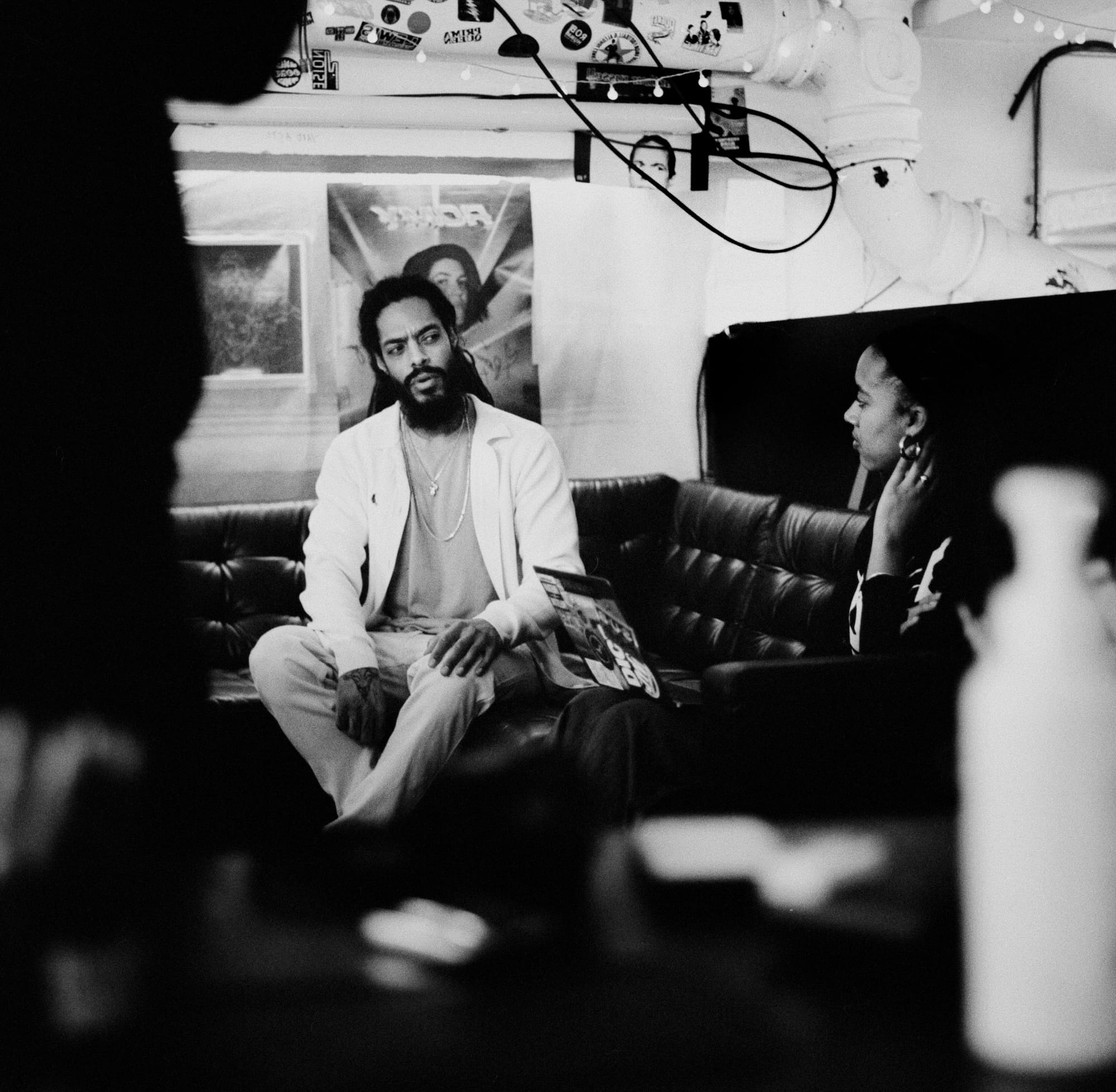
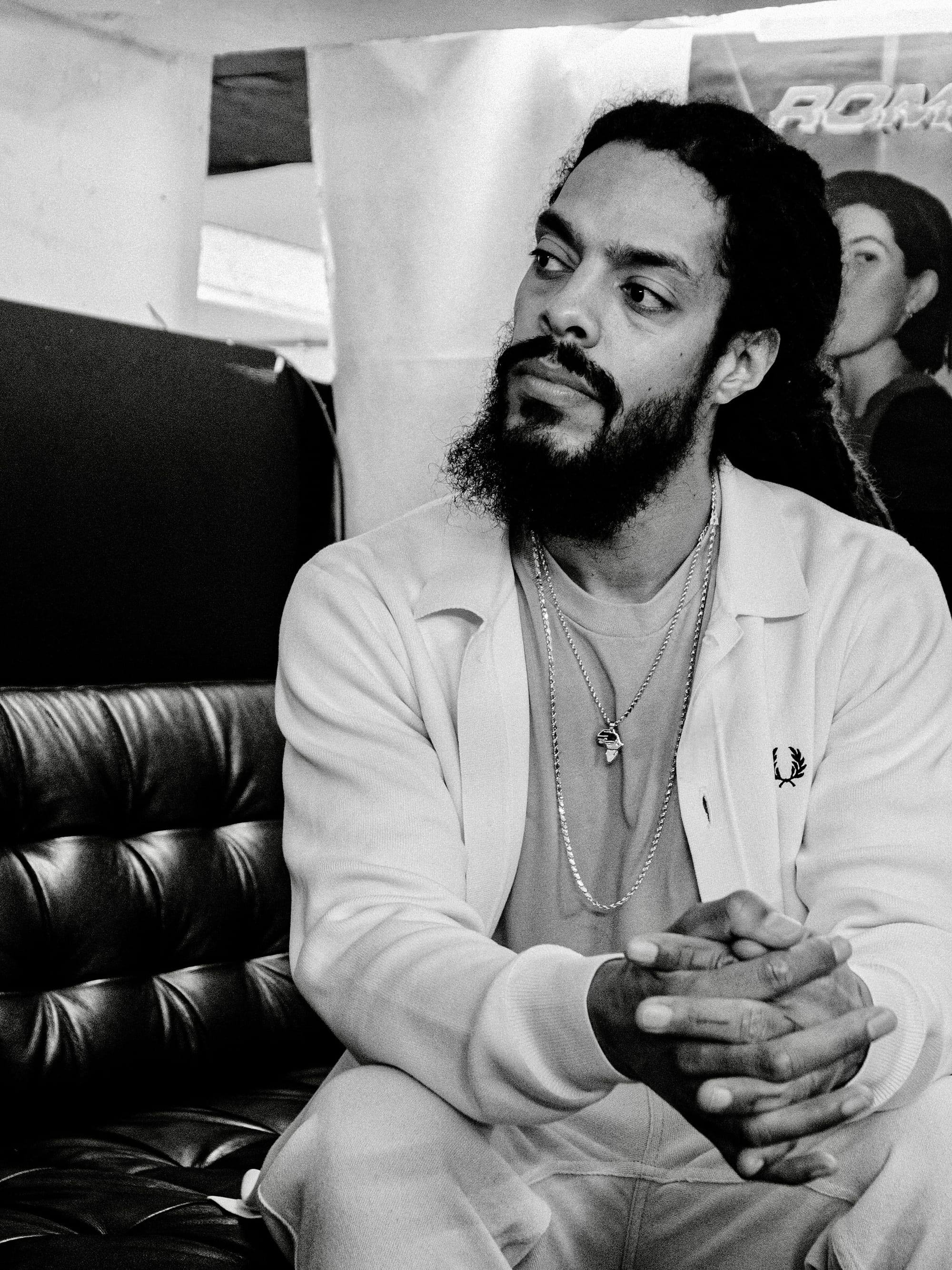
Is the album title in any way an analogy about how you are feeling in life or your approach to this project generally?
So the album title comes from...I don't know if it's a long story. I'll try and keep it short. I found myself creating music in my bedroom, which I have done forever, and having success with that. Then, through chance, but I suppose also through being open to new experiences and new relationships, I found myself in a position where I’d met somebody (Rex Roulette). He allowed me to work in and share the studio space that he had. It was an incredible moment and he's become a great friend. There were no studios near where I lived at the time, but his studio was five minutes up the road from where I lived. He went away to America to tour and he said: "Okay look I'm going away, just come and have a look at the studio." So I went and looked and he's like, "Here's the keys". He just gave me the keys the first time I've ever met him. He didn't ask for anything, didn't want anything in return. I thought wow, I've never been trusted like that before from anybody, even people that I've grown up with. This is someone that I have no relationship with and he's given me the keys to the studio. He gets back two months or a month and a half later, and he's like: "Hey, man, I need to get the keys." I'm thinking, oh damn. I’ve enjoyed having this space and now it's gone. But I went to take him his keys and he said, "Alright, let's go get you some keys cut." So we went and we got the keys cut and he said: "Yeah, cool, you can just come in whenever you want." So I suddenly had access to this studio space, which was extremely close to where I live.
The studio space itself, there was a big house at the front and it's just on a normal residential road. As you walk through that gate there's this beautiful garden. It's a weird thing to feel in the city because green space is usually so limited. I was living in a flat. I can't remember the last time I saw a garden in the city. It was this beautiful garden, the cat would be roaming around, I would eat my lunch in the garden and the sun was out. There was a robin that would come by every day that I was eating my food out there. It would come and wait, and I'd put a little piece of whatever I was eating out, and it would take it, and it would fly back. I started to use the outside space of the studio, as much as I was using the studio space itself.
I was spending a lot of time in the sun because it was summertime. I felt like I was in this little slice of nature and I was able to start, kind of 'meditating' outside, really thinking about my connection with this world and with nature, with this planet, what my impact on this earth will be. Those meditations became almost like conversations with the sun.
"The sun is what was allowing me to eat outside and enjoy this beautiful garden. It would recharge me to then go into the studio space and create something that I otherwise wouldn't have been able to create."
It was like the world outside of that garden just seemed so brutal and I think you hear that in the previous albums. So the long-winded way of saying the title Humble as the Sun, again just comes from those meditations and that relationship with the sun. Seeing how every day it would just come out. Even if there are clouds in front of it, it's still there. It's this thing that never dims its light for anybody, it never tries to be anything less than it is, right? It's like a sustainer of life. Without it, we're not here.
I started to feel that I want to be that. I dont want to dim my light for anybody. Even when the clouds are in front of me and it feels like a grey day, I still want to feel present and bright, and powerful. That is what I started to feel in that space. I want other people to feel that as well through this album.
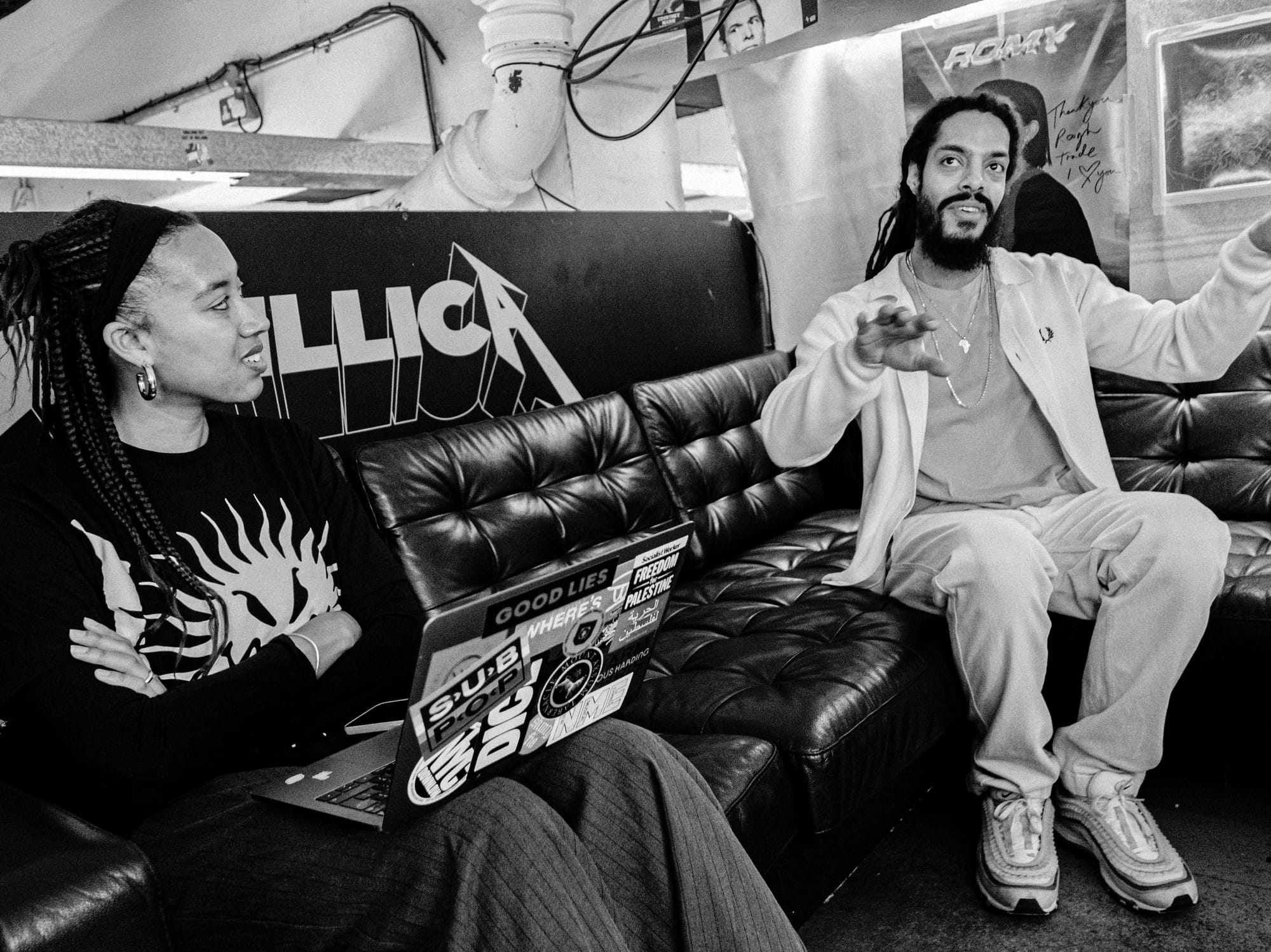
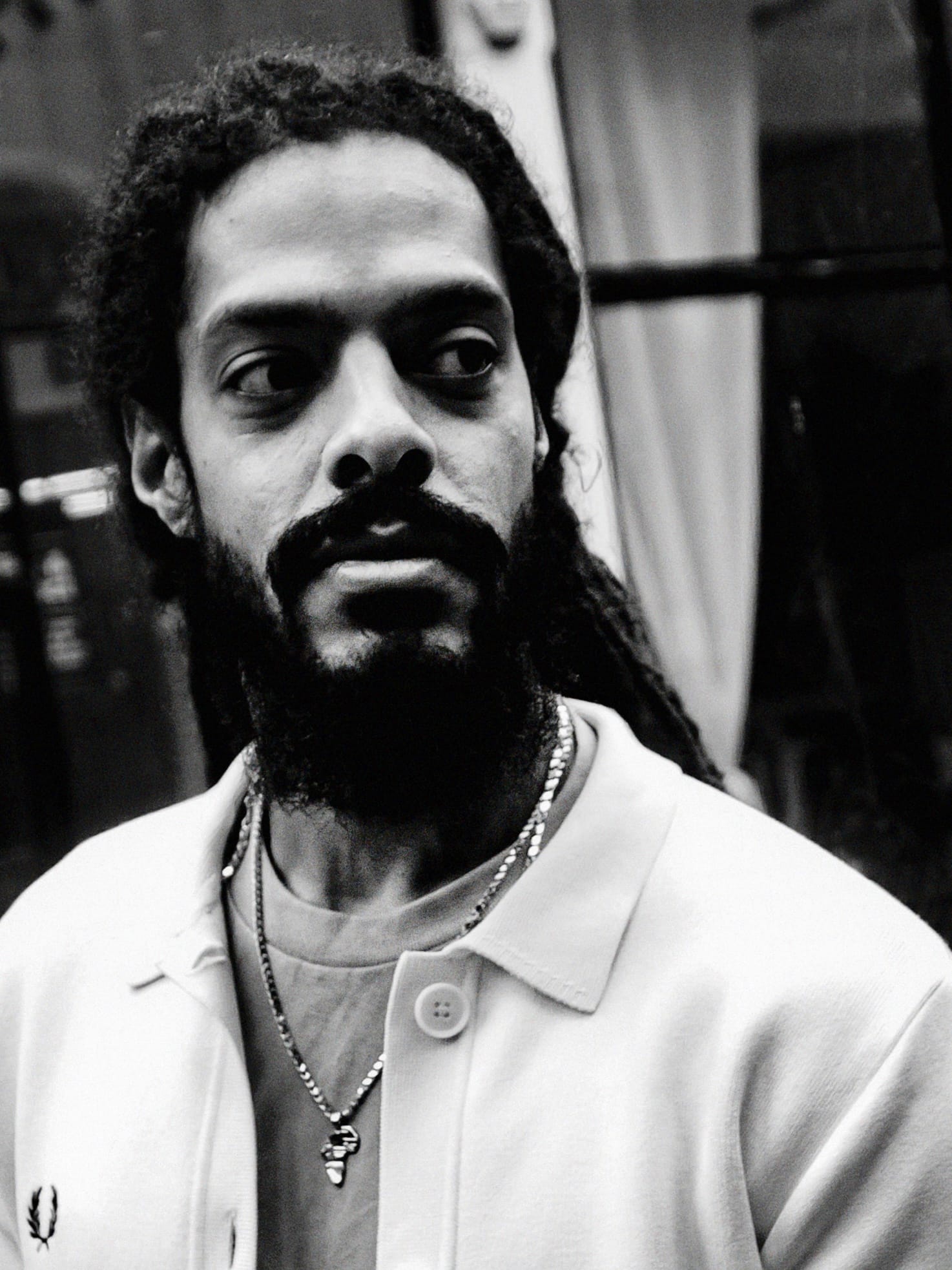
Your music has typically tackled issues with the state of the nation. It is engaging storytelling which is dark in places, but also uplifting. Do feel a responsibility to try and empower your listeners who may be able to relate to the issues of injustice?
We can acknowledge that the state of this nation is pretty terrible for a lot of people, for most people. But in addressing that, and making music and art around that, there is a possibility and there is a habit of purely dwelling on that. It doesn't make any mention of the power we have as individuals, and what we can do with that power as a collective, once we recognise it. I feel that sense of empowerment and purpose and I wanted to share that with as many people as possible.
I started to notice in the shows we were playing, if I was to shout “Fuck the Tories”, people would be like ‘Yeah!”. If I said “Bob Vylan is a band, where we are doing it independently, if we can do this, then any of you lot in the crowd can do anything that you want to do” There wasn't as much of an applause. After noticing this, I started to test it at each show. To see if it was consistent, city to city, show to show. There was never as much applause for the second statement.
"It’s so funny to me that people can see the negative, but it's hard for them to see the positive and how much power they have within themselves."
Once I had noticed this, I couldn't un-see it. I think this really did inform how this album came together, and what we are attempting to do on this album. We want to address the things which are dark, but we do have the power to change them? I believe we can try and make the decision to empower ourselves and not suffer through these things.
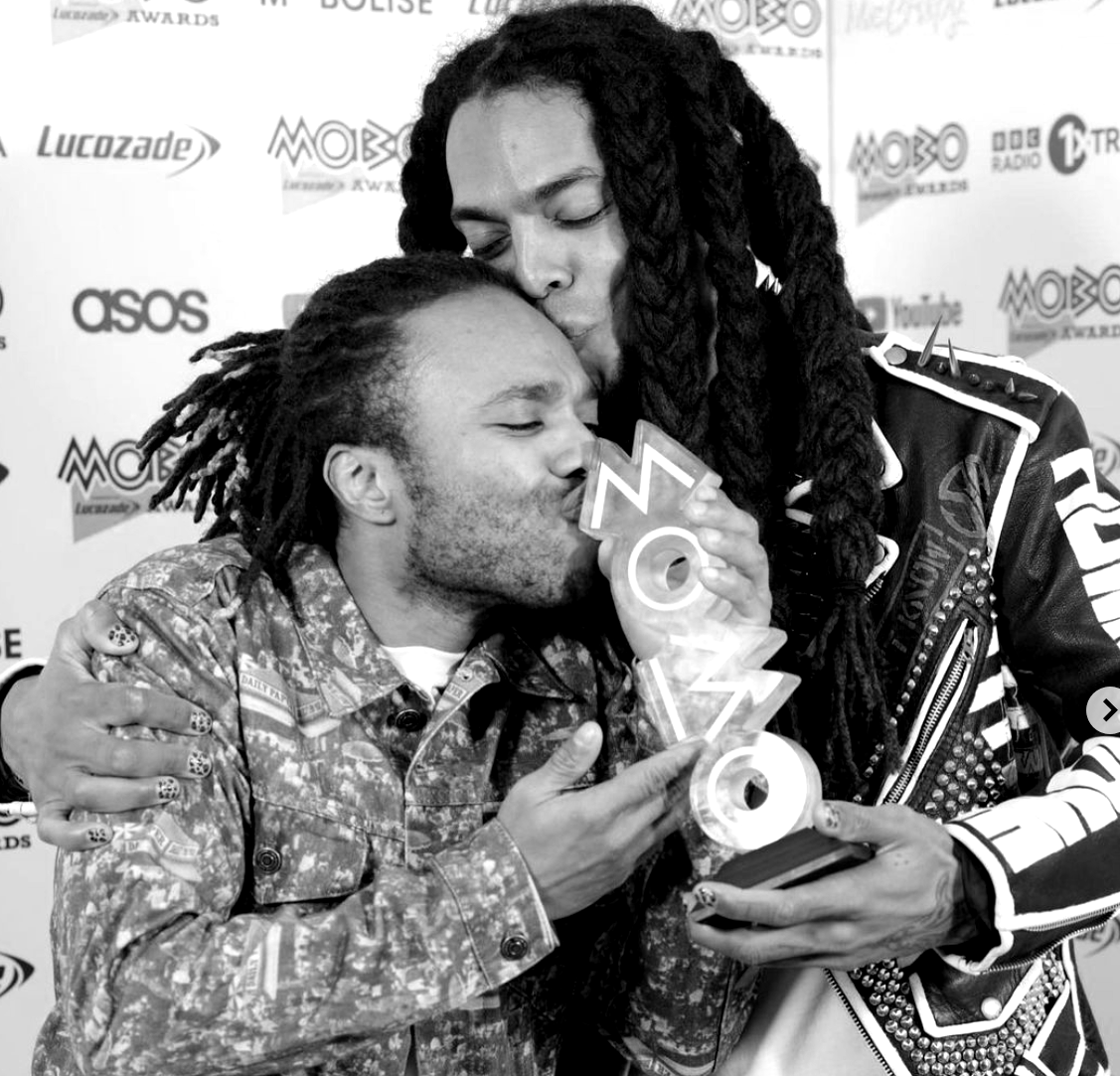
You also highlighted your DIY roots when accepting your MOBO award in 2023. This was the first-ever Alternative Music Award at the MOBOs. What did you think about the addition of this category and could it be a force for good in helping punk and rock progress with modern times?
I think that with the MOBOs, it's been a long time of them not acknowledging rock and roll as a Black art form. With any simple research, you find out that it is of Black origin. They also included the Electronic/Dance category for the first time, and again it was like of course, we know these are its origins, look at house music!
It's important that the award is included within that body. I hope that it will validate in certain environments, the participation and the successes of the people in those genres of music. Often when I see people talk about "UK music" a lot of the time its more rap-leaning music, but there is a lot of great rock music rising too. For us, we have come from the same environments as a lot of these successful rappers. People may see us on stage and say "Well I haven't necessarily heard of this band, you look a little different but you are quite similar." Hopefully, with that inclusion, people who fall into what you would typically categorise as 'Black UK music' have another place to go. They will see that we are present in all genres of music. It's all progress, it's all steps in the right direction.
Bob Vylan's third studio album is released on 5th April via Ghost Theatre.
